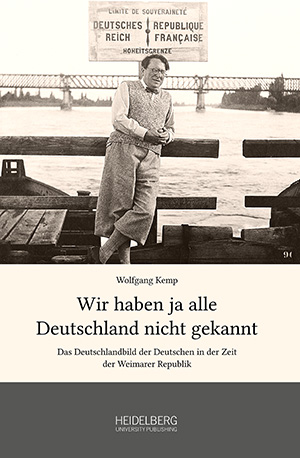
How to Cite
License

This work is licensed under a Creative Commons Attribution-ShareAlike 4.0 International License.
Identifiers
Published
Wir haben ja alle Deutschland nicht gekannt
Das Deutschlandbild der Deutschen in der Zeit der Weimarer Republik
After 1918 Germany had to find a new definition for its identity on a political and social level as well as to rediscover itself as a unity in terms of geography and culture. This process can be described as „Inner colonisation“. Scientists and artists began to compensate the many losses by tapping into the dimension of the „inner“ Germany - its unique cultural density - which in France would be called „la France profonde“. The pressure to be economical was converted into an economy of abundance of spiritual and material wealth. The newly discovered virtue of variety could be explained in short by phrases and slogans. However, this book addresses all those texts and images which emerged from an „Arbeit im Material“ (Siegfried Kracauer) and from a fresh, authentic experience - „Nähe der Anschauung“ (Ernst Glaeser).
Media coverage
"In der Summe bietet das vorliegende Werk [...] eine schwer zu übertreffende, stets erkenntnisfördernde Fülle - nicht nur Steine, sondern ein ganzes Deutschlandbild-Mosaik."
Michael Braun, in: sehepunkte 18 (2018), Nr. 9 [15.09.2018]



